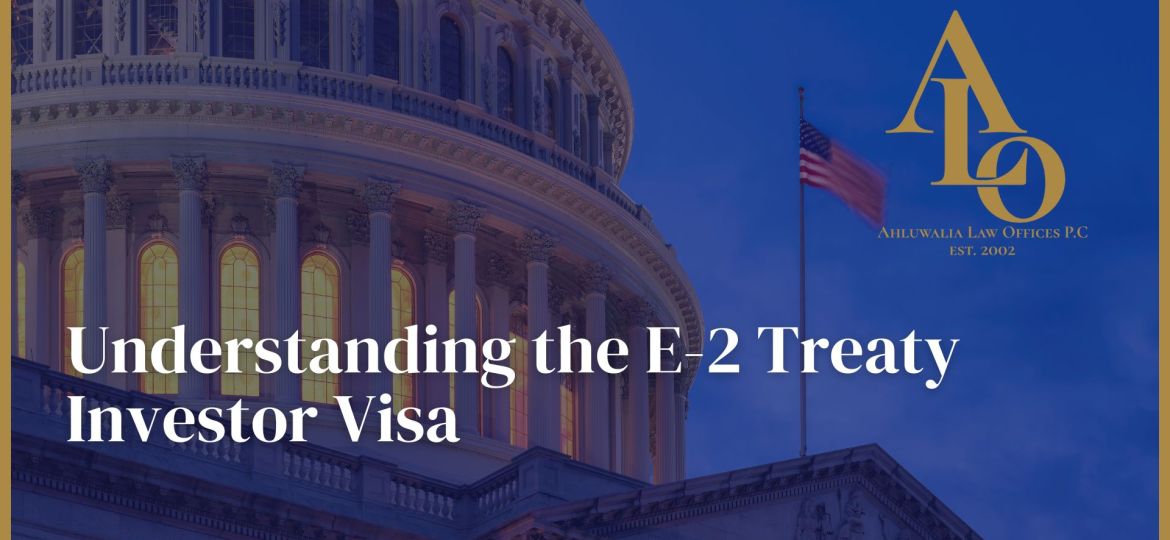
The E-2 Treaty Investor Visa is a valuable pathway for foreign nationals from treaty countries who wish to invest in and direct a business enterprise in the United States. Designed to encourage international trade and investment, the E-2 visa allows qualifying investors and certain employees to reside in the U.S. while actively developing a bona fide enterprise.
Who Qualifies as a Treaty Investor?
To be eligible, a treaty investor must:
- Be a national of a country that maintains a treaty of commerce and navigation with the United States.
- Invest, or be actively in the process of investing, a substantial amount of capital in a real, operating U.S. business.
- Seek admission to the U.S. solely to direct and develop the investment enterprise. This typically requires at least 50% ownership or operational control.
Importantly, the investment must involve funds or assets placed at risk with the objective of generating profit. These funds must be lawfully obtained and cannot stem from criminal activity.
What Counts as a Substantial Investment?
U.S. Citizenship and Immigration Services (USCIS) evaluates whether the investment is:
- Significant relative to the total cost of starting or purchasing the business.
- Sufficient to ensure the investor’s financial commitment to the enterprise.
- Of a magnitude that makes success likely.
A low-cost business requires a proportionately higher investment to be considered substantial. The enterprise itself must be bona fide, meaning it produces goods or services for profit and meets all local business requirements.
Marginal vs. Non-Marginal Enterprises
The law does not permit E-2 visas for marginal businesses—those that generate only enough income for the investor and their family. However, a newly established business may qualify if it shows the capacity to generate sufficient income within five years of approval.
E-2 Employees
Certain employees of the treaty investor may also qualify for E-2 status if they:
- Share the nationality of the principal investor.
- Fill executive, supervisory, or essential skill positions within the enterprise.
Period of Stay and Extensions
E-2 investors and employees are typically granted an initial stay of two years. Extensions may be requested in two-year increments, with no overall limit, provided that the individual maintains intent to eventually depart the United States.
Travel flexibility is also built in: when returning from abroad, an E-2 visa holder may be granted a new two-year admission period, subject to U.S. Customs and Border Protection approval.
Family Members of E-2 Visa Holders
Spouses and unmarried children under 21 may accompany or join the investor or employee under dependent E-2 status. Notably, spouses of E-2 visa holders are authorized to work in the United States without requiring a separate employment authorization document, simplifying opportunities for families to thrive.
Key Considerations
- E-2 status is specific to the approved business activity. A new Form I-129 must be filed with USCIS for substantive changes, such as mergers, acquisitions, or restructuring of the enterprise.
- While there is no statutory limit on extensions, E-2 status is nonimmigrant, requiring intent to eventually depart. Careful planning is necessary for investors who wish to pursue permanent residence in the future.
Conclusion
The E-2 Treaty Investor Visa provides a powerful opportunity for foreign entrepreneurs and qualifying employees to establish and grow a business in the U.S. Its flexibility in extensions and family benefits makes it an attractive option for many investors from treaty countries. However, success depends on careful preparation, proper structuring of the investment, and compliance with USCIS and Department of State requirements.
Ahluwalia Law Offices advises investors and their families in navigating the E-2 process, ensuring that applications meet the stringent standards of U.S. immigration law while aligning with long-term immigration and business goals.

